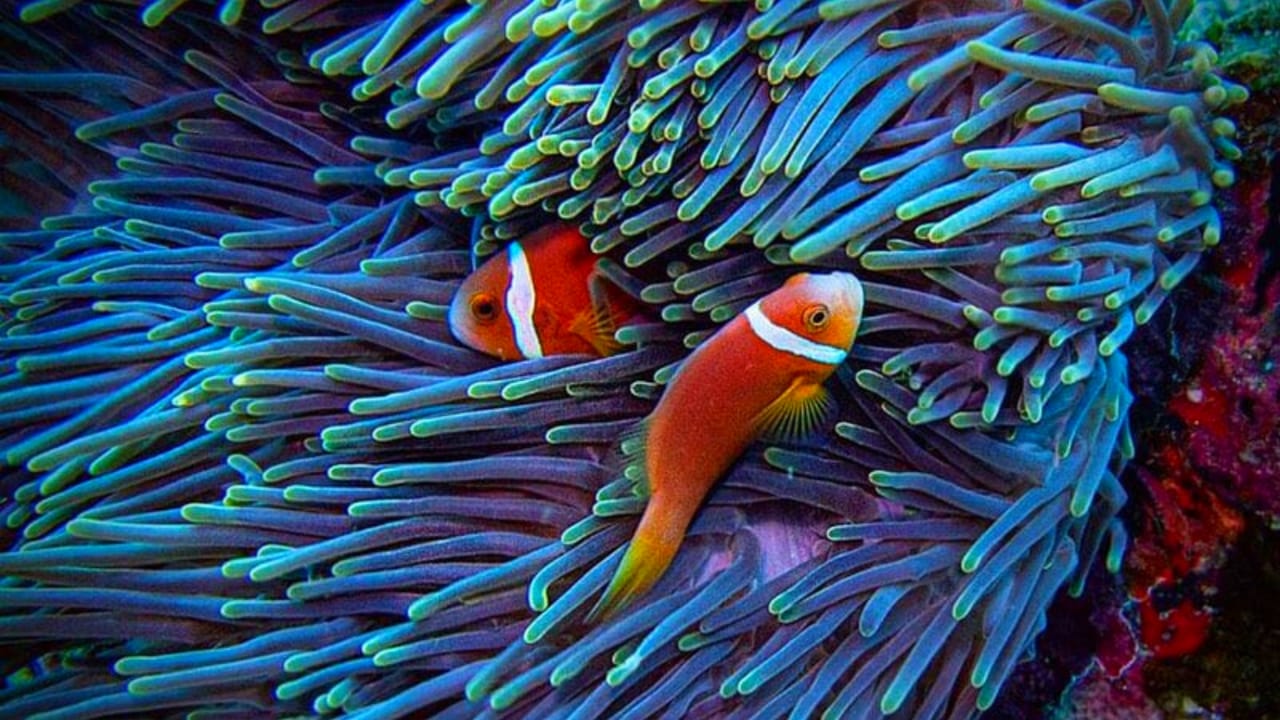 Photo by Idah Z. Pswarayi-Riddihough
Photo by Idah Z. Pswarayi-Riddihough
Diving is my favorite pastime. During the four wonderful years I spent in Sri Lanka and the Maldives, I have used my personal time to explore the amazing diversity of life under the sea. The treasures of the ocean -- and the tourist paradise they foster -- are essential for the economies of both these island economies, especially as they strive to recover from the COVID-19 health crisis.
But, today, the exquisite marine life that rings these islands is threatened. Plastic pollution is choking once pristine coastlines, endangering the fragile flora and fauna of the sea, and impacting the lives and livelihoods of those who depend on it for survival .
Unfortunately, the COVID-19 pandemic will only exacerbate the problem. The lifestyle changes that have been necessitated by the rapid spread of the infection have led to an exponential rise in the use of plastic protective gear, as well as a surge in discarded plastics from the growing deliveries of packaged food. Sadly, single-use plastics can take up to 450 years or more to degrade, spelling trouble for our oceans and seas . And, if current trends continue, we could soon end up with more plastic than fish in the sea. But it doesn’t have to be this way.
Washable cloth masks and regular handwashing with soap and water is more effective than synthetic masks and plastic gloves . And everyone can choose to support restaurants that have eliminated plastics in their packaging. The Maldives, for instance, has banned the import of single-use plastics from 2021, with an aggressive schedule to reach their 2025 targets of a complete ban on the use of single-use plastics.
Clearly, the dependency on plastics cannot be fully resolved in the short term. Even so, individuals will need to change their habits while governments and civil society will need to help strengthen systems to support this change. At the moment, each time we throw away a piece of plastic we take it for granted that government waste management services will pick it up immediately and handle its onward journey in a responsible manner until it biodegrades completely.
And we expect these services to come for free or, at most, at a very low cost. If we are to address this increasingly untenable situation, the need of the hour is a model of shared responsibility where governments, businesses, civil society, and individuals come together, with each one fulfilling their own role and responsibilities.
In most parts of South Asia, today, just 44 percent of waste is collected. This is one of the lowest rates of waste collection in the world. And even where waste does get collected, the story does not end there because South Asia also has the world’s highest percentage of open sites where most domestic waste gets dumped. To make matters worse, dumping - both legal and illegal – often takes place along waterways and floodplains, seeping into rivers and canals, and from there into the open sea.
In the Maldives, where the president has made solid waste management a top priority, the World Bank is helping the government respond to these challenges in an integrated and sustainable way. The Bank’s $17.5 million Maldives Clean Environment Project is helping the country establish waste management facilities, activate and educate island residents to sort and separate waste, promote treatment and reuse at the lowest level possible, and incubate waste-to-wealth businesses among youth. This work is joining hands with another IDA project “MEERY” to help incubate waste-to-wealth businesses among youth.
More recently, on World Oceans Day 2020, the World Bank also launched a first-of-its-kind project that seeks to combat plastic pollution in South Asia’s rivers and the seas. The $50 million IDA supported Plastic Free Rivers and Seas for South Asia project is unique in breadth and scope. For the first time, IDA funds are channeled through a regional environmental organization South Asia Co-operative for Environment Protection (SACEP) to help make businesses more ‘circular’ so that materials can flow constantly in a closed-loop, rather than being used just once and discarded. This way, plastics can continue to be used in the economy, without harming the natural environment. The project is co-financed to the tune of $10 million by a non-government partner Parley for the Ocean which seeks to address the major threats faced by our oceans and has extensive experience in pioneering a circular economic model for plastics in the Maldives.
With all these efforts, together with buy-in from governments, businesses, civil society, and the people, my hope is that when I revisit the beautiful islands of Sri Lanka and the Maldives, I will be able to dive into a pristine Indian ocean where its exceptional marine life once again thrives and prospers free of the threat of plastics.



Join the Conversation